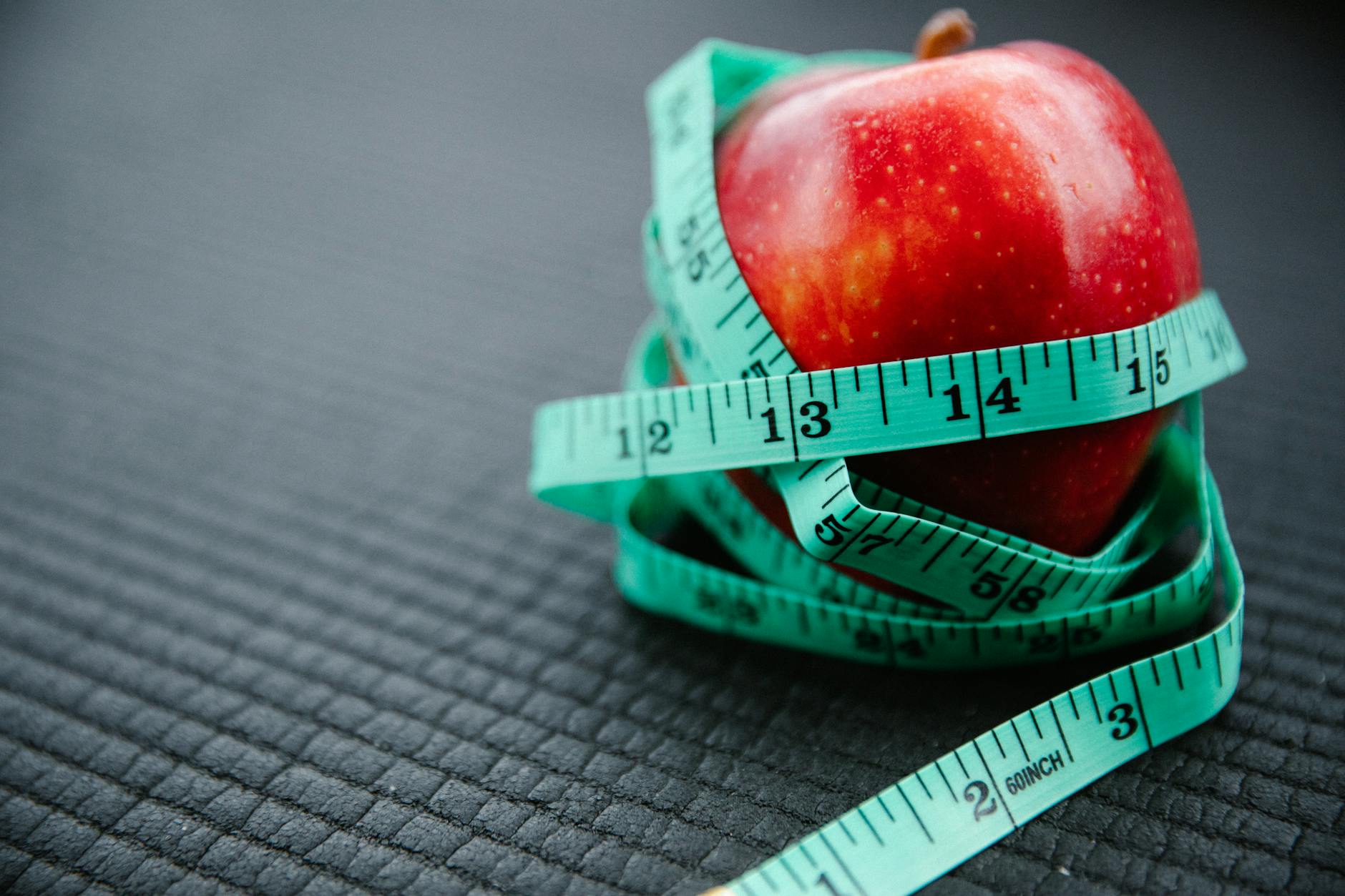Eating only 300 calories a day might sound drastic, but it’s a concept that catches attention for its extreme promises. People often turn to it hoping for fast weight loss or a quick fix to their health goals. At its core, this approach involves consuming a dangerously low amount of calories, far below what most bodies need to function. While the idea might seem simple, the risks are serious—nutrient deficiencies, fatigue, and long-term damage to your body. Understanding why diets like this aren’t sustainable is key to choosing better, healthier options.
What Is a 300 Calorie A Day Diet?
A 300 calorie a day diet is exactly what it sounds like: consuming an extremely restricted amount of food totaling just 300 calories daily. For perspective, this amount barely covers the energy in a small meal or even a single sugary drink. It represents one of the most extreme forms of calorie restriction. Advocates are often drawn to the idea that eating so little will result in rapid weight loss, but the health risks far outweigh any potential short-term benefits.
Origins and Popularity

Photo by Spencer Stone
The concept of extreme calorie-restricted diets isn’t new. Over the decades, trends such as crash diets and fasting regimens have gained attention for their promise of drastic weight loss. In the 1970s, very low-calorie diets (VLCDs) became popular, often fueled by celebrity endorsements and the pursuit of rapid transformations. These diets, such as the liquid-based “Optifast”, allowed for as low as 400 calories per day under medical supervision. Read more about VLCD origins here.
The 300 calorie a day approach is more extreme and unregulated. Its popularity appears to stem from social media challenges, misinformation, and a “quick-fix” culture that values rapid weight loss over sustainable health goals. Combined with the growing influence of platforms like Instagram and TikTok, where visual results often take precedence over health discussions, this diet has gained a controversial following.
How It Differs From Other Diets
At first glance, a 300 calorie a day diet might seem similar to other low-calorie strategies, but key differences set it apart from more well-known approaches such as intermittent fasting or VLCDs.
- Intermittent Fasting (IF): IF focuses on cycling between periods of eating and fasting, but during feeding times, individuals are encouraged to meet their daily nutrient requirements. Unlike the 300-calorie diet, it’s not about eating less daily; it’s about when you eat. Learn more about intermittent fasting versus calorie restriction here.
- Very Low-Calorie Diets (VLCDs): VLCDs usually hover around 400-800 calories per day and involve carefully planned meals with medical supervision. They are designed for severe obesity cases and provide essential nutrients that the 300-calorie plan does not. For an in-depth look, see this resource.
- Traditional Dieting: Most conventional dieting methods involve gradual calorie reductions within safe limits (1,200–1,800 calories per day for most individuals). This helps ensure steady weight loss without compromising metabolic functions or increasing the risk of malnutrition.
The sheer extent of the calorie deficit is what makes the 300-calorie diet distinct—and dangerous. Unlike these other strategies, this regimen is far too restrictive to support the body’s basic needs, making it neither safe nor sustainable.
Potential Benefits of Extreme Calorie Restriction
Extreme calorie restriction, like a 300 calorie a day diet, draws attention for its supposed short-term benefits. While the risks significantly outweigh the rewards, understanding what proponents see as advantages can provide clarity. Below are some areas where those advocating for extreme calorie control often highlight potential positives.
Short-Term Weight Loss
For many, the rapid weight loss seen within the first few days or weeks of extreme calorie restriction is a major motivator. Consuming far fewer calories than the body needs forces it to burn stored fat, resulting in immediate and visible changes.
- This effect can feel empowering and reinforce the belief that the diet is working.
- Water weight loss occurs initially, as restricted calories reduce glycogen stores, which hold water in the body.
- The fast results can act as a psychological boost, especially for those looking to kick-start a weight-loss journey.
However, this rapid shift is rarely sustainable. Learn more about the biological effects of severe calorie restriction here.

Photo by Lisa Fotios
Potential Metabolic Reset
Some believe extreme calorie restriction can “reset” the metabolism by encouraging the body to adapt to a new energy balance. Certain biological responses tied to low-calorie intake, such as increased insulin sensitivity and reduced inflammation, have led to this idea.
- Advocates suggest this might result in better long-term metabolic efficiency.
- Studies show calorie restriction impacts pathways linked to aging and cellular repair, often referred to as “metabolic switching.” You can explore more about this concept here.
Despite these claims, scientific consensus remains cautious. Extended calorie deprivation can often slow the metabolism, leading to what’s known as metabolic adaptation or “survival mode,” where the body preserves fat to endure the restriction.
Mental Discipline and Control
For some, the strict limits of extreme calorie diets create a sense of discipline and focus. The structure can provide a psychological benefit in the form of clarity or even a sense of control over eating—a need especially felt by those who struggle with impulsive behaviors around food.
- Tracking every calorie may feel empowering, giving participants a sense of accomplishment.
- Some proponents equate it to fasting, which has known cultural and spiritual benefits like mental clarity or improved focus.
However, it’s essential to recognize the thin line between mental discipline and unhealthy obsession. Long-term restriction often leads to increased preoccupation with food or even disordered eating habits. Read more about the psychological effects of calorie restriction here.
Understanding these perceived benefits can paint a fuller picture of why people might be drawn to extreme calorie restriction, even if the risks vastly outweigh these short-lived positives.
Risks and Dangers of a 300-Calorie Diet
Following a diet restricted to just 300 calories a day can lead to severe and lasting harm to your physical and mental health. While it may seem like a quick solution for losing weight, this extreme approach deprives your body of the nutrients and energy it needs to function. Below are the critical risks of this dangerous practice.
Severe Nutritional Deficiencies
Limiting your calorie intake to such an extreme level means you’re excluding nearly all the foods your body needs to stay healthy. Essential nutrients like vitamins, minerals, fats, and proteins are often absent when eating so little. How does this show up in your life? Think constant fatigue, weak immunity, and even brittle bones over time.
- Vitamin and mineral deficiencies: A diet with 300 calories cannot supply basics like Vitamin D, iron, or calcium. These deficiencies can lead to anemia, weak muscles, and long-term complications like osteoporosis.
- Elimination of entire food groups: Such restrictive eating often removes fruits, vegetables, and healthy fats, increasing the risk of malnutrition.
For more details on the dangers of extreme nutrient deficiencies, check this resource on nutritional deficiencies in restrictive diets.
Muscle Loss and Metabolic Damage
A 300-calorie diet drastically reduces protein intake, which is critical for maintaining muscle health. Depriving the body of protein forces it to break down muscle tissue for energy—a process with cascading consequences.
- Loss of muscle mass: Muscle not only helps you move but also burns calories. By losing muscle, you slow your metabolism, potentially making it harder to lose or maintain weight in the future.
- Metabolic slowdown: As muscle mass decreases, your resting metabolic rate (RMR) plummets. This can result in long-term weight gain once normal eating resumes.
For a closer look at how muscle mass is affected by extreme calorie restrictions, explore this article.
Psychological Impact
The effects of severe calorie restriction aren’t limited to physical health—they can also take a toll on your mental well-being. Living on 300 calories a day can lead to feelings of chronic stress, irritability, and an unhealthy preoccupation with food.
- Increased risk of eating disorders: Such rigid control over food intake can pave the way for dangerous behaviors like binge eating or anorexia.
- Emotional stress and anxiety: The constant hunger and lack of energy make it hard to focus, leading to frustration and fatigue. Over time, this takes a toll on mental health.
Want to understand how dieting can turn into an emotional rollercoaster? Learn more about the psychological risks of dieting.
Extreme dieting might promise fast results, but the risks far outweigh any perceived benefits, leaving both your body and mind vulnerable to serious harm.

Photo by Annushka Ahuja
Scientific Evidence on Extreme Calorie Restriction
Extreme calorie restriction has been a topic of scientific inquiry for decades, sparking debates about its potential benefits and undeniable dangers. Researchers have explored these diets through clinical studies and laboratory experiments, providing insight into what happens to the body under such conditions. This section will uncover the evidence and explore myths surrounding calorie restriction and longevity.
Findings From Clinical Studies

Photo by Nataliya Vaitkevich
Clinical studies on calorie restriction (CR), including more extreme versions, have shed light on its effects on the human body. Although many studies primarily focus on moderate calorie reduction, extreme cases like 300-calorie-a-day diets raise alarming health red flags.
- The CALERIE Trial (Comprehensive Assessment of the Long-term Effects of Reducing Intake of Energy): Conducted by researchers to study reduced calorie intake on overall health, participants reduced their daily calories by 25%, staying far above the extreme 300-calorie threshold. Findings showed improved markers like reduced inflammation and better insulin sensitivity, but significant energy intake ensured no malnutrition occurred. Extreme diets lack such balance, creating severe risks instead. Learn more about CALERIE’s findings here.
- Health Risks of Severe Restriction: According to research published on calorie restriction’s health effects, excessive limitation (below 800 calories daily) leads to medical issues like fertility decline and bone loss. Extreme calorie restriction for prolonged periods exacerbates these dangers, often triggering irreversible damage. Read about these health effects here.
- Physiological Impact Beyond Weight Loss: Studies like one published in the European Molecular Biology Organization (EMBO) summarize how extended severe restrictions cause adverse cellular adaptations. While moderate calorie restriction has shown preemptive effects on cellular repair mechanisms, diets under 500 calories trigger energy starvation, countering the body’s natural repair processes. For more, check out the research on this topic.
These studies underline a key point: while modest calorie restriction with balanced nutrient intake may produce short-term improvements, extreme dietary restriction leads to health failure rather than gains.
Longevity Myths Versus Facts
The idea that significantly cutting calories can extend lifespan is a concept rooted in studies on animals like mice and monkeys. However, extrapolating these findings to extreme calorie restriction in humans is fraught with oversimplifications and misunderstandings.
- Animal Studies Support Moderate, Not Extreme, Restriction: Research demonstrates moderate calorie restriction (20%-40%) slows aging in various animal models, improving longevity. However, diving below nutritional thresholds (as seen in 300-calorie diets) disrupts organ function rather than supporting life extension. Explore the detailed findings from animals here.
- Human Trials Lack Definitive Proof: One intriguing study monitored participants under calorie-reduced programs over two years, showing a slow-down in biological aging markers by 2%-3%. But these decreases occurred within balanced caloric deficits, ensuring nutrient needs were met. Extreme diets, on the other hand, are more likely to accelerate aging rather than slow it. Learn more about this research here.
- The Myth of Reversal: It’s tempting to think slashing calories to extremes can reset or reverse aging. According to reviews debunking longevity myths, the notion of extreme calorie reduction as a miracle solution lacks scientific basis. While metabolic switching occurs in certain fasting models, these benefits disappear when malnutrition sets in. Dive into debunking longevity myths.
The idea that simply “eating less” translates to living longer falls apart under extreme conditions. Human physiology requires a balanced energy intake to sustain vital processes and promote health, distinguishing facts from misleading claims.
Alternative Healthy Approaches to Weight Loss
When it comes to losing weight, cutting down to an extreme 300-calorie-a-day diet is not the only, nor the safest, solution. Building sustainable habits around nutrition, movement, and mindful eating can lead to long-lasting results without putting your health at risk. Below are some alternative approaches that prioritize your well-being while helping you achieve your weight goals.
Balanced Diet Plans

Photo by Leeloo The First
Eating a balanced diet is the cornerstone of healthy weight loss. Unlike extreme dieting, a well-rounded approach lets you eat a variety of foods while keeping your calorie intake within a reasonable range. This ensures your body gets the nutrients it needs to function properly.
- Why Balance Matters: A diet rich in fruits, vegetables, lean proteins, whole grains, and healthy fats keeps your metabolism efficient and your hunger comfortably in check. Your body relies on these diverse nutrients just as much as it depends on reduced calories for effective weight management.
- Meals That Work for You: A balanced 500-calorie meal that includes a lean protein, a small serving of carbs, and plenty of veggies is infinitely healthier than nibbling on 300 calories of snack foods.
For more guidance on the importance of a balanced diet in weight loss, check this article. Incorporating a variety of nutrient-rich foods ensures you lose weight sustainably and feel energized throughout the process.
Incorporating Exercise
When paired with smart eating habits, exercise amplifies your weight-loss efforts. Physical activity doesn’t just burn calories during the session—it also boosts your resting metabolism and helps maintain muscle mass, which is essential for long-term results.
- Types of Exercise: Mix strength training, like lifting weights or bodyweight exercises, with cardio activities such as cycling or walking. This combination supports fat loss while preserving lean muscle tissue.
- Consistency Is Key: Aim for 150 minutes of moderate-intensity exercise or 75 minutes of vigorous activity per week. Even 30-minute walks can make a big difference if done regularly.
Curious about how exercise might impact your metabolism? Check out this resource. Staying active doesn’t just help you lose weight—it improves your overall health, making it easier to keep the weight off.
Mindful Eating Practices
Mindful eating is more than just a trendy phrase; it’s a transformative way to develop a healthy relationship with food. By focusing on the experience of eating, you cultivate awareness about your body’s hunger and fullness cues, which helps prevent overeating.
- What Is Mindful Eating? It involves slowing down during meals, chewing thoroughly, and paying attention to flavors, textures, and how your body feels. Distractions like watching TV or scrolling on your phone should be avoided to truly focus on your food.
- Benefits of Mindful Eating: Practicing mindfulness can reduce stress around eating, help regulate portions, and even enhance the pleasure of meals. Over time, it promotes balanced habits instead of restrictive ones.
For a deeper dive into how mindfulness can reshape your eating behaviors, explore this article. Mindful eating not only aids in weight management but also fosters a healthier outlook on food.
By incorporating these practical and healthy alternatives, you can avoid the pitfalls of extreme calorie restriction and adopt a lifestyle that enhances both your physical and mental well-being.
"Boost your gains! Check out this **3000 Calorie Meal Plan** for muscle growth. 💪🔥"
Who Should Avoid the 300-Calorie Diet?
The 300-calorie-a-day diet is among the most extreme forms of calorie restriction. While some are lured by the promise of rapid weight loss, this diet is neither safe nor practical for most people. Severe calorie limitations pose risks that are particularly hazardous for certain groups. Below, we’ll outline who should avoid this diet and why the consequences could be severe.
Pregnant and Breastfeeding Individuals

Photo by Nataliya Vaitkevich
Pregnancy and breastfeeding are periods when the body requires extra energy and nutrients. A meager 300-calorie intake is far below what’s needed to support the mother’s health and the baby’s development.
- Pregnant individuals need sufficient calories to provide for the growing fetus and maintain their own strength. A lack of nutrients can result in developmental delays and low birth weight for the baby.
- Breastfeeding mothers require additional calories to produce milk. Caloric deficits of this severity can cause fatigue and reduce milk production, which directly affects the baby’s health.
For a deeper understanding of why very low-calorie diets are unsafe, refer to this article.
Individuals With Pre-Existing Medical Conditions
For those already managing chronic health conditions, the risks of extreme calorie restriction can be life-threatening.
- Diabetes: Severely limited caloric intake can destabilize blood sugar levels, which is especially dangerous for those taking insulin or other diabetes medications.
- Heart Disease: A lack of essential nutrients can worsen cardiovascular health and increase the risk of complications like arrhythmia or heart failure.
- Cancer Patients: Adequate caloric and nutrient intake is critical to support the body during treatment and recovery. Depriving the body of fuel can delay healing and inhibit the effectiveness of treatments. Learn more about balanced dietary needs for cancer patients here.
Adolescents and Children
Children and teenagers are in a phase of rapid growth and development, which requires substantial energy and nutrition. A diet this restrictive can lead to both short-term and long-term harm.
- Inadequate calories and nutrients may stunt growth, delay puberty, and impair cognitive development.
- Mental health is also a concern, as extreme restrictions during adolescence can lead to eating disorders and body image issues that persist into adulthood.
People With a History of Disordered Eating
Those with past or current struggles with eating disorders should avoid extreme calorie-restricted diets at all costs.
- This type of dieting often triggers unhealthy behaviors, such as obsessive calorie counting or restrictive patterns that can spiral into a full-blown eating disorder.
- A history of binge eating, anorexia, or bulimia makes such diets particularly triggering. The focus on extreme restriction can reignite harmful cycles.
Read more about why disordered eating patterns make low-calorie diets dangerous here.
Individuals Seeking Sustainable Weight Loss
If your goal is long-term weight management, the 300-calorie diet is one of the worst paths to take.
- Extreme calorie restriction slows your metabolism, making it harder to lose weight over time. Once normal eating resumes, the weight often comes back, and then some.
- Sustainable weight loss requires balanced meals, physical activity, and maintaining your energy needs—not drastic, short-sighted measures.
For insights on sustainable dieting practices, check out this guide.
This diet may seem appealing at first, but the science and logic behind it reveal how dangerous it is for nearly everyone. Adopting such an extreme approach creates risks that far outweigh any temporary benefits.
Conclusion
Extreme calorie restriction, such as a 300 calorie a day diet, is not a safe or sustainable approach to weight loss. The potential for severe physical and mental harm far outweighs any short-term benefits. Instead of pursuing quick fixes, focus on balanced nutrition, regular physical activity, and mindful eating to achieve lasting results. Your health is a long-term investment—choose approaches that support it, not ones that put it at risk.


